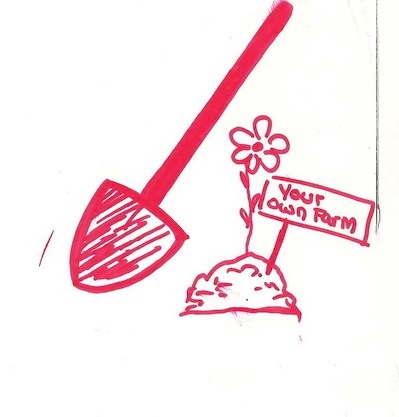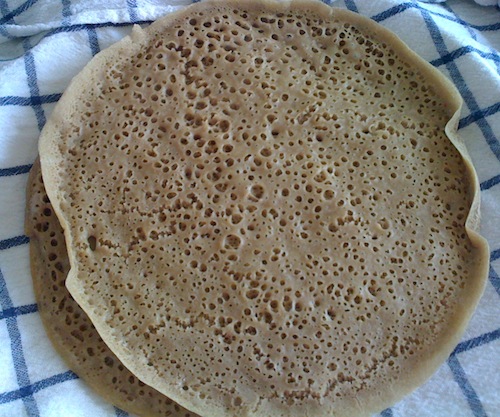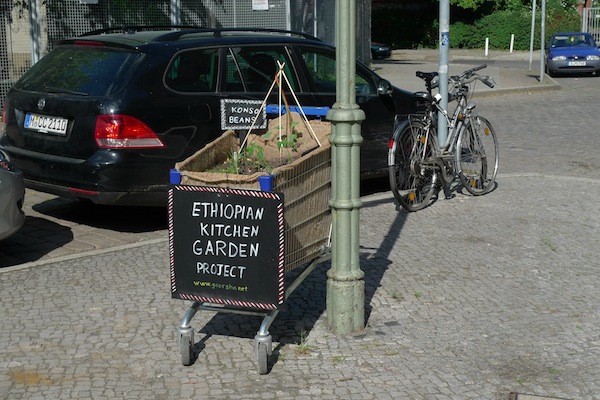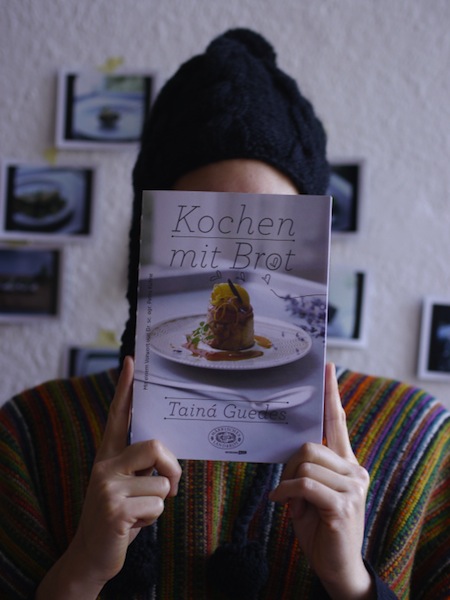Introducing Food & Movement e.V.
As a founding member, I’m excited to announce Food & Movement, a network for people who believe in a sustainable food system and active movement for future generations. The organization allows members to utilize the network and non-profit status to realize their vision and enact projects related to a whole range of sustainable food and movement issues. We invite you to join us by visiting our website and learning more at www.foodmovement.de.
Rations at Experiment Days

I will be facilitating my game, Rations at Experiment Days Berlin, a community platform and week-long camp for self-organized urban living projects on Saturday September 14, 2013. The game will be offered as a participatory model of engagement for food systems planning. Participants will explore attitudes, beliefs and resources to build a sustainable food-web for their community space on the Spree-Acker in Berlin.
Wild Cultures Fermentation Workshop

Together with Anne duk hee Jordan as Mak Maak I will be presenting a fermentation workshop at the Agora Art Collective in Berlin Neukölln on Sunday September 22, 2013. Everyone is welcome to learn and share personal fermentation secrets. We will focus on traditional Korean and Ethiopian fermentation methods to make kimchi, vinegar, te’j- Ethiopian honey wine, and injera the traditional Ethiopian flat bread made with teff. Cost is 10€ for materials and snacks. BYO glass jars to take home the goods. Email Lynn (at) foodsystemsplanning.com if you would like to reserve a spot.
See what I’ve been up to with my Ethiopian projects at www.goorsha.net
Over 20 Years of Food Policy in Toronto
Interview with Lauren Baker, Coordinator of the Toronto Food Policy Council (TFPC) July 2013.
I recently met-up with Lauren at the ICLEI Resilient Cities Urban Food Forum in Bonn (June 1, 2013) and was so inspired by her presentation about the TFPC and how their work has evolved over the past 20 years. I asked her a few questions about what’s going on in Toronto.
Transcribed & Edited by Jackie Burton

LP: Why are you involved in food systems work?
LB: I came to this work when I was a student… studying international development and was questioning the world, especially in light of so many issues and inequities at home in our own society and food just became a way for me to link all of these broader social issues. The “aha” moment was actually volunteering at a (particular) food bank where I just thought, ‘this is sort of disturbing and problematic in the way that we have a charitable food model that is complicit with some of the other inequities that we face in our society…’ and then it happened to be World Food Day so the FAO was organizing events and giving out small grants (for local) events and we applied for one and that began a whole focus on food systems work. When I finished my Master’s, I began farming on a rooftop up in Toronto and (from up there you) could see acres and acres of empty rooftop space and I just thought, ‘all of this could be green.’ So I started this urban farming project with two other people called Annex Organics and we did that for five years. It was a certified organic farm- the first one in the city.
LP: You are the coordinator for the Toronto Food Policy Council. How long have you been involved there?
LB: I’ve been in this position for about 2.5 years…I was actually on the council in probably the late ‘90’s through the early 2000’s.
LP: So tell me about Toronto. What are the most pressing issues now in your region that either you see or you’re working on already?
LB: Our food strategy team is really focused on access to healthy food. In Toronto we have communities that have layers of disadvantage related to walkability, access to retail, food, healthy and food retail. In those communities we see that folks (that) have higher instances of diet-related illnesses, they have less access to recreation space, park space, green space and so we’re working with partners through the food strategy implementation to think really carefully about food access. We’re doing work on the retail environment and trying to engage small retail owners – this is the healthy corner store work that we are borrowing from the US and we’re trying to figure out that world in Toronto. We also have a mobile food market (which is) still in its pilot phase.
I’m also really involved in regional food systems work and I think that this is really exciting- it’s relatively new. You can see the first phase of that work through the Greater Golden Horseshoe Food & Farm Action Plan. The City of Toronto has recognized the importance of agricultural land and our reliance on farmers outside of the municipal boundaries. So we have that language in our official plan and all seven municipal and regional councils endorsed this plan and provide staff support for implementation. So now we have a working group and we’ve engaged planners, economic development staff and public health staff across the regions. We meet about once every month or six weeks.
LP: That’s ambitious!
LB: Yeah, it is. We’re doing an inventory of all the local food infrastructure that we have. We’re trying to start with the food producers, manufacturers, the facilities (and) just trying to get it on paper so we can monitor the health of this sector more closely. And then we want to layer in some of the social service, like the food banks, the community gardens, all of that later.
LP: Can you talk about Toronto and the systems’ synergy?
LB: I mean, the left hand doesn’t speak to the right and so this is the goal is to get folks talking in the same room. And that’s why this regional working group is so exciting. Another example is the work that we are doing around urban agriculture. It’s interesting because there’s the whole set of issues within the city government around finding synergies. The city government is really large we often don’t know what our colleagues in different divisions are doing- sometimes we work at cross-purposes so other departments’ work contradicts our goals and objectives in Public Health (for example). So we have all this great work happening in the community but of course- almost nobody in the city even knows about it or understands. So what that did for the city is to (formally) trigger the convening of an interdivisional working group. So we’ve just done a review of everything that the city does around urban agriculture and now we’re identifying specific projects that we can all bring our expertise to.
LP: Fascinating. I heard you mention a double imperative in your work. As in, ‘what can the city do for food?’ but also ‘what can the food do for the city?’ and I wanted to hear you describe it a little bit more. Is this your philosophy? A lesson learned? A vision? How do you classify this?
LB: When we conducted the food systems municipal food policy scan across Canada we were in conversation with colleagues across the country doing this work and were thinking about how to frame it because the purpose of that paper was really to say ‘this work is happening,’ it’s really been pushed by civil society and grassroots. It’s only now being taken on formally by municipalities so we wanted to support and provide a rationale for why municipalities should do that So, the (first) imperative is that cities are really where we see the human face of global challenges like climate change and weather pattern disruption, climate variation, issues around poverty and equity, rural-urban migration, etc. We have an imperative to act because of that, because of (the city’s) impact on agricultural lands and production and the economy around food and the fact that people need to eat, and need to continue eating through all of this. And because cities have to deal with the growth that results from rural migration into urban areas, all of these things. So, there’s the whole set of broad issues that has impact on local areas.
The second imperative is- what are cities already responsible for? What are their ‘normal duties’ as cities? We have formal jurisdictional responsibilities over things like waste, land use planning and growth planning, economic development, tourism- parks and recreation. So I think that that’s the imperative that drives broadly this (food systems) work for this kind of agenda for cities because food is one way to think systemically about both of those imperatives. Through food you can achieve a whole range of other social, economic, and environmental objectives that help that help address some of these broader issues and also help find synergies in the city that can make the business of the city more formal more streamlined in terms of linking across our divisional silos.
The main lesson here is that we need to be pushed to link our work to the broader agenda- the broader urban, regional, and global agenda and because our work really supports and enhances and contributes to that agenda. We need to explore what is our broader social, environmental, economic agenda- and this is the ‘what food can do for your city piece’- and we need to write ourselves into that broader work more deliberately.
Food Waste – Dinner Exchange Collaboration

Food waste is a huge problem in the food system- from our personal kitchens to supermarkets and industrial food-processing factories. We are all complicit in surplus economics whether we like it or not.
I’ve been reading the very informative book, Waste by Tristram Stuart which reveals some shocking statistics about food waste at the global industrial scale and explains the evolutionary origins of surplus.
I was gratified to dwell on the food waste question recently in collaboration with Dinner Exchange Berlin a project that brings people together for meals made from perfectly good food that would otherwise be thrown away. As part of the Performance Practices Marathon at the Institut für Raumexperimente we gathered food from three Berlin markets as they were closing and asked the vendors to donate the food that they would normally throw away because it’s no longer sale-able.
It was mind-blowing how much food we picked up; crates of pomegranates, melons, bananas, apricots, mangoes, grapes, endive, lettuce, carrots, tomatoes, cucumbers, herbs, onions, potatoes, soup greens (leeks, carrots, celeriac, parsley) eggs, cheese, bread, etc…and there was (lots) more if we wanted it. Apparently many of these vendors pay a service to help them dispose of their waste. So they were more than happy for us to take it.
It really breaks my heart to think of all the energy that goes into growing so much food – food that is or was once alive- headed directly to the grave. It’s simply criminal. So what do we do about it? What can we do at the personal level? And what is being done at the bigger institutional level to help stop food waste?
Our meal helped to clarify and think more about these questions. And it was fun to cook collaboratively and spontaneously. Our menu for 80 people: Gazpacho, fruit smoothies, roasted vegetables with lentils and spelt, bread, butter & cheese, and pear and ginger bread pudding.
One meal isn’t going to save the world, but raising awareness is a start. There are many interesting food-saving initiatives underway. Slow Food Germany uses food waste as a central theme in its current activism, and supermarkets are starting to make commitments to reduce food waste like Tesco in Great Briton and others like Safeway in the US have started composting programs with organic waste.
Ethiopian Kitchen Garden Project

As the 2013 installment of the Gemüse Korb Mobile Garden, I have started the Ethiopian Kitchen Garden Project, which is currently residing in Neukölln. Details of the project will be kept up to date at www.goorsha.net.
Spring has sprung

Now that it’s spring, I’ve got my sleeves rolled up and have started this year’s garden projects- a mobile Ethiopian kitchen garden and a musical vegetable garden at the Papageno school in Berlin, Mitte. More on this to come.
I’ve been busy with my Ethiopian goorsha project, and have been experimenting with recipes and adding interviews. Check it out at www.goorsha.net.
Cooking with Bread at Berlin Green Week

I am happy to announce the new book Kochen mit Brot from my talented friend Tainá Guedes from Share Your Food. For over a year she has been in the kitchen tinkering with new ideas for what to do with left-over stale bread and has come up with some really nice recipes and has put them together in a beautiful book. Even, including a recipe from my mom for summer blueberry bread pudding.
Tainá and I will be sharing cooking tips and a recipe for bread terrine on the cooking stage at the Berlin Green Week on Saturday January 26 at 15:30 (auf der NRW-Bühne in der Halle 21.b).